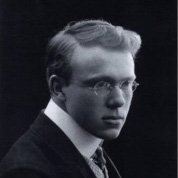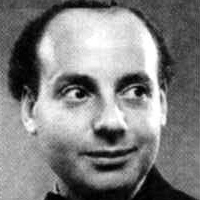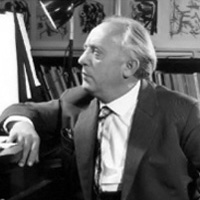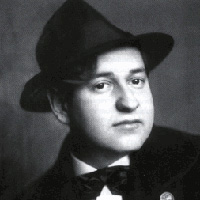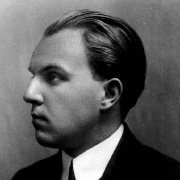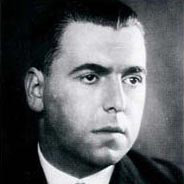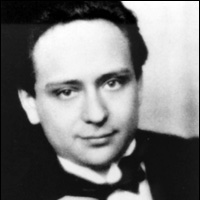2013
James Conlon
Who has infused his professional expertise with a sacred mission of raising public consciousness to the significance of the musical works of composers whose lives and compositions were suppressed by the Nazi regime.
James Conlon.
Photo by Chester Higgins.
During the Holocaust, the Nazis captured and killed Jews from all professions and walks of life. Among those who perished were Jewish composers whose music was subsequently lost for decades. This particular body of 20th-century European classical music has remained substantially unknown. The American conductor James Conlon has made it his mission to perform these works and return them permanently to the canon.
James Conlon has spent his life immersed in music, conducting in such opera houses as the Paris National Opera, the Royal Opera at Covent Garden, and the Los Angeles Opera, where he is the Music Director. At the LA Opera, Conlon is working concurrently on three major projects. One is to establish a tradition of performing works by Wagner in Los Angeles on a regular basis, including LA Opera’s first Ring cycle in the United States. Conlon has also begun a tribute to Benjamin Britten, conducting a series of works which will culminate in 2013 to mark Britten’s centenary.
It is his third project, however, that is even more ambitious than the other two—to bring to life the music of composers silenced by the Nazis. Before and during the Second World War, music by Jewish composers was actively suppressed. Some composers sent their music off to various places for safekeeping before they were taken to the concentration camps, but with their deaths their works languished, hidden away, lost and forgotten. However, in the decades that followed the war, a wealth of compositions began to be recovered and published.
Conlon’s belief in the importance of these works is evident when he writes that “Our perspectives on the history of twentieth-century classical music are incomplete because an enormous quantity of works has remained unplayed, and the lives of those composers largely ignored … The twentieth century needs to be rescrutinized after we acquaint ourselves with the voluminous music cast out by Nazi suppression.” Some of the pieces have been performed in Europe, but Conlon wanted them to gain an audience in America.
He began planning a series of performances to be held at Ravinia Festival, the summer home to the Chicago Symphony Orchestra, called “Breaking the Silence.” Wanting also to showcase some of the operas written in that era, he began another series called “Recovered Voices”—choosing operas to be staged and performed over several years at the LA Opera. Conlon writes, “We cannot restore to these composers their lost lives. We can, however, return the gift that would mean more to them than any other—to play their music.” His goal is to have the music of these composers given its due place in music history, and be fully integrated into the body of European classical music, where he believes it belongs both for its own artistic value and for its significance in the history of the twentieth century.
To this end, Conlon founded the OREL Foundation, whose mission is to encourage “the performance of works by composers suppressed as a result of Nazi policies from 1933–1945 in order to allow the greater musical community of today and tomorrow the opportunity to determine the place of these composers and their works in the history and canon of twentieth-century music.” By discussing, researching, teaching, and presenting these compositions, James Conlon hopes the music and composers will take their rightful place alongside the music work that was allowed to continue and flourish during the Nazi era.
James Conlon's acceptance speech for
the 2013 Roger E. Joseph Prize
It is a great honor to be with you here today, one that I could never have imagined. As a child of New York City I have walked past this beautiful, spiritual home so many times. Today I am welcomed to Temple Emanu-El by Hebrew Union College-Jewish Institute of Religion, by the numerous members of the Joseph family of several generations, and by Rabbi Ellenson and Rabbi Posner. It is also a joy to share this ceremony and this moment with all of the cantors and rabbis to be ordained today.
The Joseph Prize is an enormous honor, and I feel great humility when I read and hear the names of those recipients who have preceded me—icons of extraordinary courage, some of whom have inspired me all my life. I'm humbled because I don't see myself as such a courageous person, as so many of those great individuals had been, but, simply, as somebody who has done what he likes to do. As a classical musician, I have lived my life’s passion.
“Alongside the important acts of remembrance demonstrated over the course of many years, is an obligation to remember the works of art.”
Almost by accident, I have been led to mission of discovery. Most of us who have spent lives in classical music had not known about the enormous volume of music composed by men and women who were marginalized, at best, and destroyed, at worst, during the time of the Nazi regime of the 1930s. To restore this music to its proper place in the repertory of classical musicians and their public is now my goal. I've been fortunate to pursue and live this mission.
It is a life-long task. Although I am honored to be amongst all of you today on this occasion, I accept this award not for myself, for what I have done, nor for what still must be accomplished. I do so on behalf of all those composers who have been marginalized and, unbelievably, seventy years after those terrible events, have still not received the full recognition they deserve.
The good news is that there has been much progress in the last ten to twenty years. And the ongoing challenge is that there is a great deal more to do. I will continue to do my part. I accept this with thanks to my parents, Joseph and Angeline Conlon, who reared their children—all five of us—with a deep social conscience and the moral mandate to protect the dignity of other human beings and to fight and defend it when it is attacked.
In the mission I pursue, this dignity has been called into question. In addition to it being an artistic issue, it is also one of remembrance. Alongside the important acts of remembrance demonstrated over the course of many years, is an obligation to remember the works of art. Music has to be heard to be alive. Until those composers and their works find their rightful place in the repertory of classical music, their lives will not have been acknowledged. Among the crimes of the Nazi regime, was its attempt to stifle the Jewish voice. The regime succeeded to the degree that many of those compositions and composers are still unknown or still played much less frequently that they deserve to be.
In this respect, the Nazis still enjoy a posthumous victory. I for one will not accept that posthumous victory and hope, piece by piece, moment by moment, composer by composer, to bring that music to audiences around the world, share it with all music lovers until that time when these compositions will have found their proper places in the repertory. Thank you very much for honoring me today. I congratulate all of you being ordained this morning and wish everyone all the best in the future.


